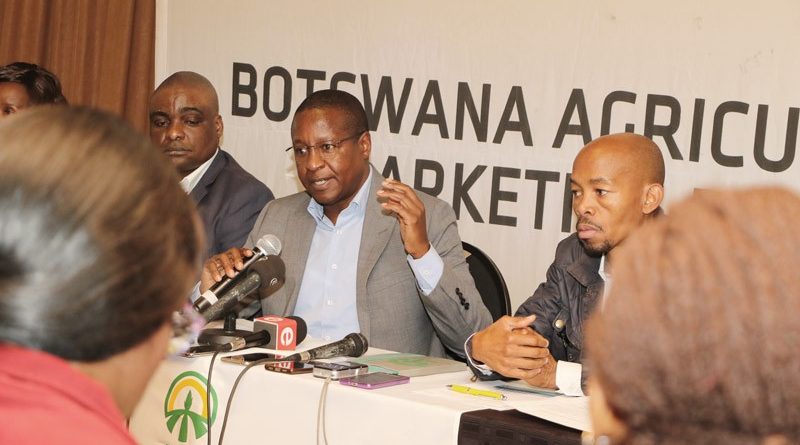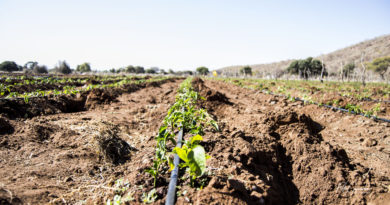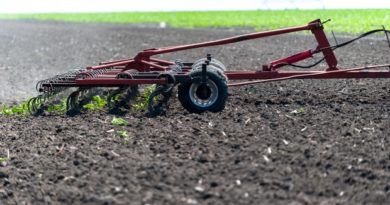Morakaladi Aims To Turn BAMB Around
The new Chief Executive Officer of Botswana Agricultural Marketing Board (BAMB), Leonard Morakaladi, says that the organization, which manages strategic grain reserves (SGR), currently has no maize reserves, but has 2000 Mt of cowpeas and 30 000Mt of sorghum. The organization has been charged with managing and maintaining the SGR for the past twenty years. The reserves could be in the form of the products or money equivalent.
BAMB was enacted by parliament in 1974, its primary and core objective was simply to buy all the scheduled harvest from farmers, big or small, and then sell it to consumers. The organization currently operates 38 branches countrywide.
“We have presence almost in every corner of this country.” Says Leonard
BAMB commenced to buy the 2017-2018 ploughing season produce from June this year and it has been purchasing all crops at Grade 1 and Grade 2 except for cowpeas which they were buying at Grade 1 only.
Leonard says the new pricing mechanism, which they use, was adopted from the South African Futures Exchange (SAFEX). While they use SAFEX, Leonard says that they always try to add a few hundred Pulas on top in order to encourage farmers to produce more grain which will enable BAMB to explore export opportunities in future.
BAMB benchmarks prices based on the prevailing prices in Southern Africa in order to synchronize with the regional market. Also by using SAFEX, the organization ensuring parity and adherence to international best practices.
Another initiative used by BAMB allows producers cash back at 30% discount of all input costs. “For every 5 hectares ploughed, 30% of input costs is given back to the producers” he says.
However, BAMB realizes that the discount needs to be linked to the rate of production rather than just the amount of hectares ploughed. By so doing, Mr Morakaledi believes that the 30% discount will be able to translate into increased output from farmers.
So far BAMB has spent close to P67 million purchasing Sorghum, Pulses and Maize. Roughly 14Mt of sorghum was purchased from farmers for bout P32million and Morakaladi says that they expect to purchase more sorghum from local producers as time goes on. Approximately 3,3Mt was purchased from farmers for roughly P30million.
“And finally, maize, amounting to 2.6Mt was purchased for about P5Million. It was mostly yellow maize, “Says the CEO. He went on to explain that this is a big shortage considering that the annual demand for white maize is about 100 000 metric tons per annum although, Botswana on a good year produces about 20 000 metric tons of both white and yellow maize which thus classifies the country as a net importer.
When explaining the low tonnage of maize bought, Morakaledi said: “For maize, last season conditions were not favourable, the rains were late and low, so we have received low quantities from the farmers.”
Morakaladi says maize production is hindered by weather conditions, and to answer to that government is opening production areas like the Dukwi area where weather conditions are favourable for maize production and they are hoping that that would translate into increased harvests.
He says government is also looking forward to assisting the smallholder farmers as they make a large contribution in overall agricultural production in the country. Leonard believes that with adequate assistance and a bit of organization, smallholder farmers can meet the national market needs while commercial farmers can target the export market.
Further, there is little production of millet in the southern and western parts of the country, although market demand is high which calls for its increased production. Cowpeas production on the other hand stands at 7 000 metric tons per annum which goes to local consumption alone.
The role government has to play in agricultural production is substantial as far as attaining Food Security is concerned, therefore strategically formulated moves to increase production need to be implemented, maintained and further developed. This could positively impact significantly on the agricultural revolution resulting in the much needed employment creation and contribution to GDP.
Mr Morakaladi says currently as BAMB they are faced with challenges of limited storage and they looking into increasing storage facilities in Pandamatenga and Dukwi. He further says in future, in order to reduce the import bill, BAMB will purchase every grain from farmers regardless of quality to cater for both arable and livestock production.
“Third grade grain from farmers, though low paying, can be very useful for livestock production” he says.
While some farmers have cried foul in the past regarding grading of their produce, Leonard says that their grading standards were developed in conjunction with Botswana Bureau of Standards in order to facilitate grain merchandising through the use of uniform tests and terms.
“Grades relate to a grain’s end use quality” He elaborated. He went on to explain that the grades basically relate to how grain characteristics affect performance during processing or the quality of the end product.
“We advice farmers to bring samples to be inspected before delivery to ensure adherence to standards.” Says Morakaladi. This will help save farmers the cost of delivering a product that may be rejected. Farmers are also advised to deliver their produce to BAMB branches immediately after harvesting to avoid pest infestations at their respective farms, a phenomenon most prevalent in cowpeas.
“BAMB does not accept produce that has been treated with grain protectants as we would have no assurance of what chemical was used at what dosage and when it was applied.” Emphasizes Leonard.
While initially BAMB was tasked only with buying, storing and selling grain, the organization realised that they had to include other aspects of arable farming in their operations. This was motivated by the simple fact that there was need to improve the quality of produce the organization received from farmers. Mind you, when BAMB started all those years ago, there weren’t many shops, if any, that sold farm equipment and related products. This meant farmers struggled to get what they needed, not only to improve the quality of their crops, but the quantity of what they produced as well.
BAMB inherited what used to be called Livestock Advisory Centres ( LACs) in 2016 which used to be under the ministry of Agriculture. LACs were in charge of selling veterinary products and services. “We have taken a deliberate decision to use our veterinary services as one of our strategic areas to further entrench BAMB to the other sub-sector apart from arable production.” Says Mr Morakaladi. He concludes by saying that they intend to create linkages between arable farmers and livestock producers who, he emphasizes, naturally do have synergies.
For more information call BAMB at 3951341 or visit their nearest branch.


